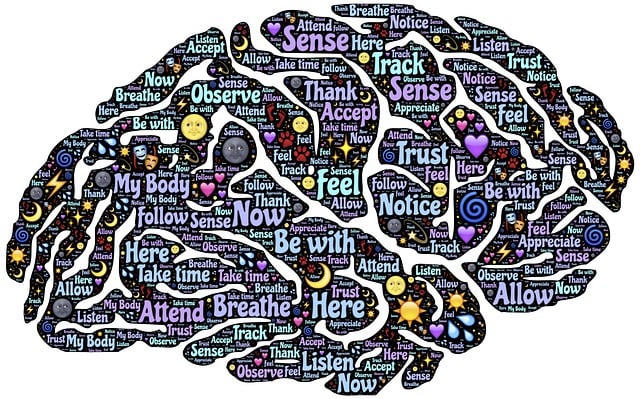Littleton Young Adults Therapy (LYAT) provides a specialized program for 18-30 year olds, addressing unique challenges of this life phase with evidence-based therapy. Focusing on individual growth and resilience, LYAT helps manage stress, academic pressures, career aspirations, and relationships. Through open dialogue, self-reflection, and coping strategy development, it reduces anxiety symptoms while fostering a supportive community that prioritizes mental health. Combining therapy with developmentally appropriate activities, LYAT enhances overall well-being and a sense of belonging. Using comprehensive, holistic assessment techniques including self-reported measures, observer ratings, and structured interviews, LYAT creates tailored interventions and effective treatment plans.
Explore the comprehensive evaluation methods of mental wellness programs, with a particular focus on Littleton Young Adults Therapy. This article delves into the intricate process of assessing and improving therapeutic interventions designed for young adults. From program overview to diverse assessment techniques and advanced metrics, we provide insights into how Littleton Young Adults Therapy measures success and ensures ongoing effectiveness. Discover the tools and strategies that drive positive mental health outcomes for this demographic.
- Understanding Littleton Young Adults Therapy: A Program Overview
- Assessment Techniques for Measuring Mental Wellness
- Evaluation Metrics and Tools for Effective Program Improvement
Understanding Littleton Young Adults Therapy: A Program Overview

Littleton Young Adults Therapy (LYAT) is a specialized program tailored to address the unique challenges faced by young adults aged 18-30. It offers a comprehensive approach to mental wellness, focusing on individual growth and resilience. The program recognizes that this critical life phase often involves significant transitions, academic pressures, career aspirations, and interpersonal relationships, all of which can contribute to heightened stress and anxiety. LYAT aims to provide a safe space where young adults can explore their emotional well-being, develop effective coping strategies, and build a strong foundation for long-term mental health.
Through evidence-based therapeutic techniques, LYAT facilitates open dialogue and self-reflection, empowering individuals to manage stress, overcome challenges, and reduce symptoms of anxiety. The program also emphasizes the importance of public awareness campaigns and mental illness stigma reduction efforts, aiming to create a supportive community where young adults feel understood and encouraged to seek help without hesitation. By combining therapy with developmentally appropriate activities, LYAT seeks to enhance overall well-being and foster a sense of belonging among its participants.
Assessment Techniques for Measuring Mental Wellness

Evaluating mental wellness is a multifaceted process that requires a variety of assessment techniques. At Littleton Young Adults Therapy, we employ a holistic approach to gain a comprehensive understanding of our clients’ mental health. This involves combining self-reported measures with observer ratings and structured interviews. Self-Awareness Exercises play a crucial role in this assessment, enabling individuals to reflect on their emotions, thoughts, and behaviors. By fostering Mental Health Awareness, these exercises help identify patterns and triggers that may contribute to mental health challenges.
Furthermore, our evaluation methods include crisis intervention guidance, which is essential for addressing acute issues and providing immediate support. This component ensures that we not only understand the client’s current state but also have strategies in place to manage any emerging crises. Through these diverse assessment techniques, Littleton Young Adults Therapy aims to offer tailored interventions and effective treatment plans, catering to the unique needs of each individual.
Evaluation Metrics and Tools for Effective Program Improvement

Evaluating a mental wellness program goes beyond simple satisfaction surveys. Effective programs leverage diverse metrics and tools to gauge progress and spark continuous improvement. At Littleton Young Adults Therapy, we’ve found that combining quantitative data with qualitative insights yields the most impactful results. For instance, tracking attendance rates and client retention over time paints a picture of program accessibility and appeal.
Moreover, assessing changes in key areas like resilience building and empathy building strategies through structured interviews or self-reported surveys provides deeper understanding. By comparing pre- and post-program data on these aspects, therapists can identify the most successful communication strategies and tailor them to better serve young adults’ evolving needs. This holistic approach ensures that the program remains dynamic and responsive, ultimately enhancing its effectiveness in fostering mental wellness among its participants.
Evaluating mental wellness programs is essential for ensuring their effectiveness, and Littleton Young Adults Therapy (LYAT) employs a multifaceted approach. By combining comprehensive assessment techniques with robust evaluation metrics, LYAT can measure progress, identify areas of improvement, and adapt its strategies accordingly. These methods enable continuous program refinement, ultimately enhancing the support provided to young adults navigating mental health challenges. This strategic evaluation is key to the success and longevity of LYAT in fostering positive mental wellness outcomes.









